#and if i knew there was interest
Explore tagged Tumblr posts
Text
AuDHD is so funny sometimes like what do you mean my hyperfixations/special interests will last for years on end or possibly forever but they will cycle out every month or two with absolutely no transitional period or warning. like i will think about the same topic every day obsessively for 46 days in a row and on the 47th day with no visible cause adhd brain goes "ok! bored of that now" and autism brain goes "dw i got something queued up for ya" and i blast into full blown obsession on some other topic whose mental file folders haven't opened in 9 months. brain's out here treating hyperfixations like a crop rotation. once the dopamine runs out it cycles in another one but once something's in the rotation it never ever leaves. last summer we brought in one from when i was 11. it's so funny to me but frustrating too bc like. i cannot stress enough my inability to predict or control this. or how completely abrupt and random it can be
EDIT: seems this is more common among ND people than i thought, and probably not limited to AuDHD specifically :] i was just describing my own experiences and i'm not an authority, but i'm glad i'm not alone in this<3
#actually adhd#actually autistic#audhd#aphelion.txt#ik 'adhd brain' vs 'autism brain' is a gross oversimplification especially given how much overlap there can be#but it at least helps me conceptualize wtf is going on in my head when i do this lol#and yeah i'm mostly referring to fandoms in this post but it can happen w more 'Traditional' special interests too#like my linguistics special interest which hasn't popped up in a couple years now but whenever it does#i will fill literal notebooks while studying 4 languages at once and simultaneously inventing a conlang#and then i'll be like Ok that was fun! and several months later im deleting like. 2gb of textbooks off my iphone to make room for an update#And sometimes yeah there is a precipitating event like 'Oh something new happened in X fandom with my blorbo!' but sometimes it's like#yeah. no. idk either. switch got flipped in my brain and X no longer sparks joy. only Y rn. how come it's Y? yeah idk i also wish i knew#i don't think any of this is actually an uncommon experience for people with these types of neurodivergencies it's just.#the severity of abruptness and TOTALITY of the switch that makes me feel like a weirdo sometimes lol#like I'M getting mental whiplash from this sometimes. idk how y'all are still following my blog
11K notes
·
View notes
Note

Was dissecting the SOTM trailer and apparently your monty is a mm member comic is now canon


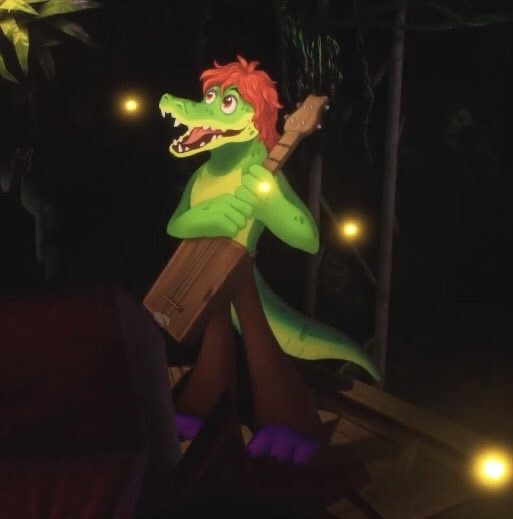

ANOTHER WIN FOR MONTY ENJOYERS!!!
(Original comic)
#ask reply#YOU GUYS DONT understand how hyped I got seeing that gator#I knew Monty would have just a bit more lore#cause he’s literally a swamp animal has been shown to be friendly with Mr hippo#and tge mm members being shown as in the swamp too#it much of been they were all early concepts#that faz ent use now as backup characters#I wanna say too that this SOTM Monty#he’ll probably have a small side story in notes or something#over how he was considered to be Freddy’s partner#but they instead went with springbonnie#so it can set up Bonnie and Monty’s beef LMAO#that might be delusional take but I’d be so here for it#haters for life Monty and Bonnie art 🩵#I feel so smart my brain is huge one win for me#I doubt Monty will be mega important but will be an interesting side thing#I’ll take my crumbs#idk if it’s canon just yet but him being shown is enough for me lmao close enough !!#we take those!!
4K notes
·
View notes
Text
tshirt that says NO LIVE ORGANISM CAN CONTINUE FOR LONG TO EXIST SANELY UNDER CONDITIONS OF ABSOLUTE REALITY
#i literally JUST finished hill house a few days ago and i already want to reread. Badly. it's sooo so so soo sooooooooo good <33333!!!!!#also completely enamored by shirley jackson's writing style i NEED to read everything she has written ever like right now..#opening lines of ALL TIME btw 👆❗❗❗#r.txt#the haunting of hill house#ALSO i've seen commentary videos on the tv show they made of hill house but from what i remember of it it's SO different from the book???#i think they were all siblings in the show which is??????? like why would you change that part?? i love sibling relationships as much as the#next guy but i feel like the fact that none of them knew each other was such an essential part of the story like why would u change it....#also eleanor was like. an entirely different character who was also already dead in the show i believe??? and dr. montague doesn't exist??#hill house could've been really good as a show idk why they changed it up like that...like was the original story not interesting enough for#you or something?? WHO decided to make that change i just wanna talk 🤨
19K notes
·
View notes
Text
guess who got themself hyperfixated on yet another piece of shockingly emotionally compelling children’s media
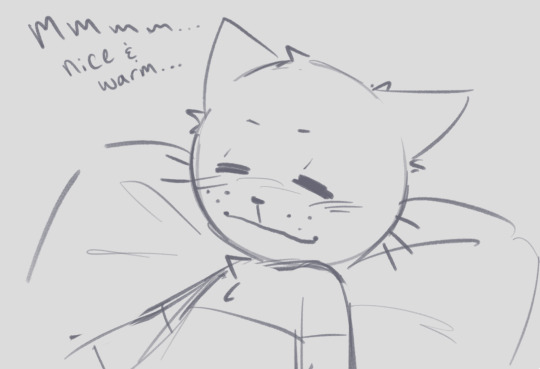

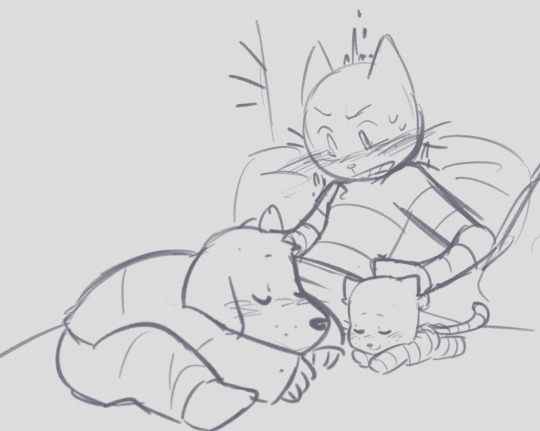
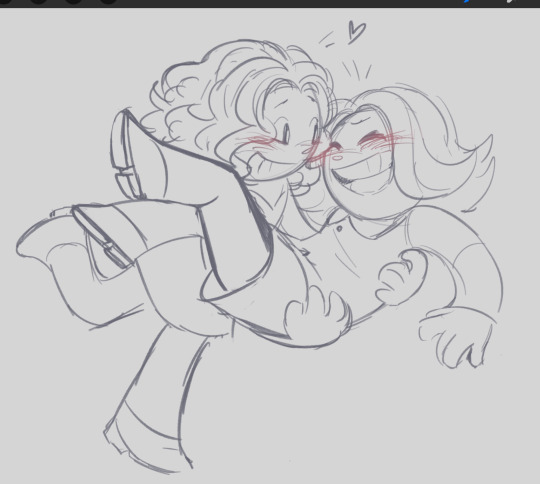




#dog man#dogman#petey the cat#lil petey#yolay caprese#sarah hatoff#detey#sarah x yolay#<- do they have a ship name? idk but they mean a lot to me#it’s funny bc I knew these books got crazy emotional before I read em bc I’ve seen pages posted from em before#but I still was not prepared for how much they genuinely made me sob#that gay little cat means the world to me#big fan of the reverse divorce arc he and dogman are going down#these characters are so much fun to draw#I LOVE FINALLY BEING INTERESTED IN SOMETHING WITH SIMPLE CHARACTER DESIGNS‼️‼️‼️‼️‼️
2K notes
·
View notes
Text
America's Sweetheart

summary : Jack Abbot shows up for the Fourth of July, three years since you last saw him. You’re 23 now—older, sharper, and very much not the girl he remembers. The tension builds fast: porch stares, jealous glances, a game of chicken no one wants to win. He nearly breaks. You make sure he does.
word count : 11,152
warnings/content : 18+ MDNI explicit sexual content, age gap (23/f, 40s/m), dominant/submissive power dynamics, jealousy, mutual provocation, grief, war trauma, PTSD references, mention of past death of a spouse, mention of a past death of a parent (mother), emotionally charged arguments, manipulation, dad's best friend trope, use of another character for jealousy, emotional repression, messy feelings, public setting tension, intense eye contact as foreplay, one bed (brief), reader is not innocent, reader is the problem (affectionate), Jack is also the problem (derogatory), slow burn with porn-level payoff ?
July 3rd, 4:42 PM – Westmoreland County, Pennsylvania Outside of Pittsburgh. It’s humid. The cicadas are screaming like the past never left.
You hear the truck long before you see it, old engine, cracked muffler, the kind of sound that makes the birds stop screaming. The tires bite gravel. The engine cuts out. Then nothing. You’re on the porch already, pretending to read. One leg slung over the other, a cold glass sweating in your palm. You don't look up. Not right away. Not until the driver’s side door groans open.
He came.
For the first time in almost three years, Jack Abbot is back in Westmoreland County. Back in your father’s house. Back into orbit, like a planet pulled from whatever distant axis he’d exiled himself to. He steps out of the Silverado like someone who’s not sure the ground wants him back.
The engine ticks behind him, overheated, sun-fatigued, too old for this road. It’s the same truck he’s had for over a decade, still bearing the dent in the rear bumper from when someone backed into him in a Walmart parking lot and he refused to get it fixed because “it’s cosmetic.” He gets out slow, jeans loose at the knees, white t-shirt clinging at the chest. The cuff of his right pant leg settles just right over the boot that hides the prosthetic. Below the knee, right side, carbon composite. You’d never notice. Unless you already understood what to look for.
But you do. You know more than he thinks you do.
Jack Abbot was a combat medic. Afghanistan. Did three tours before the last one took his leg and the rest of what he hadn’t already buried. The records say “non-life-threatening injury.” The look in his eyes says otherwise. He doesn't talk about the explosion. He doesn’t talk about the two men he tried to save and couldn’t, or the third whose name he still says under his breath when he thinks no one’s listening. What’s worse, though, what he never talks about, is what happened at home while he was gone.
His wife.
She worked nights at PTMC, was the kind of nurse who didn’t speak unless it mattered, who remembered birthdays and blood types in the same breath. She was calm in the way trauma nurses have to be. Capable of turning a scream into a code and a code into a rhythm. Dana liked her. Which is to say: Dana gave her hell, trusted her anyway, and never asked twice when she needed coverage. Her handwriting was a mess. Half-print, half-cursive, always rushing somewhere. He loved that about her. Said it looked like urgency in motion. She burned fall-scented candles deep into summer; warm vanilla, clove, too much cinnamon. She knew he didn’t like the smell, but she lit them anyway, and he never said a word. He hated the scent, but he loved her more. She hated small talk. Hated pity. Hated the way cafeteria microwaves never got anything hot all the way through. But she loved warm socks, old mugs, and the last ten minutes of any shift when the adrenaline gave out and everyone finally got quiet.
They lived in Robinson Township, in a house with red kitchen walls and a porch that creaked when the wind hit just right. A house Jack had keys to before he ever figured out what it meant to stay. She gave him six days in the summer of 2005. He gave her five and a letter he didn’t plan to leave behind. She never brought it up. Not once. But when he came back months later, washed out and bone-tired and finally willing to look her in the eye, she opened the door and said the only thing she ever asked of him again:
"You never leave like that ever again."
He didn’t.
They got married quietly. No cake, no dress, no music, no audience. Just a courthouse, two pens that barely worked, a clerk who didn’t look up, and a shared last name that didn’t feel like a question. She kept wearing his t-shirts to bed, always the softest ones, stretched at the collar and warm from the dryer. They argued about the thermostat like it meant something, like the temperature could settle the weight between them. And some mornings, before either of them spoke, she’d make toast and leave a note by the coffee: Buy milk. Or Don’t forget your charger. Or Come home meaner, I dare you. He keeps that one. Folded. Soft at the edges. Glove compartment. Always.
She died in winter. A back road, black ice, a semi she never saw coming. He was overseas. In another country. Another war. Patching someone else together while the woman who taught him how to stay bled out on asphalt an ocean away. By the time he landed back in Pittsburgh, the house was exactly as they left it. Her badge still clipped to the fridge. Her scrubs folded on the dryer. A bottle of half-used lemon cleaner under the sink, cap loose like she’d meant to come back for it. In the bedroom, her notebook was still open on the nightstand. He stood in the doorway for less than an hour. Didn’t touch the lights. Didn’t sit on the bed. Didn’t open the drawer where she kept the post-its.
He kept the house. Paid the bills. Replaced the water filter when the light came on. But he never moved back in. Instead, he rented a condo closer to the hospital. Said it was temporary. Said the commute was easier. But he knew what he was doing. Even back then. Even with the war still clinging to him. He was going to go civilian. Go legit. Take everything he learned patching people together in tents and turn it into something permanent. Residency. Scrubs. Real name on a badge.
He signed the lease five months before the blast took his leg.
The house in Robinson Township stayed exactly where it was. Waiting. Still full of her. He tried therapy twice, then quit when the second one asked how often he thought about forgiving himself.
Your father didn’t know any of that when they met. They weren’t in the same unit. Didn’t know each other overseas. They met at a VA support group in the basement of a Unitarian church—two men sitting too far apart on folding chairs, half-listening to someone read aloud from a worksheet titled Finding Purpose After Loss. Jack never spoke during the sessions, but he always stayed late. Your dad did too.
They didn’t bond over war.
They bonded over what came after.
Your mom was diagnosed with cancer just before your sophomore year of high school. Pancreatic. She was gone in six months. After that, your dad started showing up to group every Tuesday. Said it made the evenings easier. Said there was something about the way Jack didn’t talk that made everything quieter in his own head.
They’d sit on the curb after meetings, drinking from bottles in paper bags like they were back in high school. Talked about absolutely nothing. Water pressure. Dog food brands. VA red tape. They didn’t call each other friends. That would’ve been too sentimental. Too soft. But when your dad says buddy, Jack shows up. And when Jack slurs brother at the end of a bottle, your dad never corrects him. Neither of them remarried. Your dad said no one could handle how he grieved. Jack said no one should have to. And now he’s walking up the porch steps, sun in his eyes, curls matted under a hand he drags across his face like he's hoping to wipe it all away.
“Jesus,” your dad says, stepping out behind you. “I’ll be damned.”
“You already are,” Jack mutters, squinting. “I just came to make sure the rumors were true. You still live like this?”
“Worse. We put the flag up.”
Jack glances at the porch post—flag pole angled just right, stars flapping lazy in the July air. “I hate that thing.”
“Then I knew you’d show.”
You finally speak. “Well, look what the wind blew in.”
Jack’s eyes land on you for the first time. And it’s not a casual glance. It's a diagnosis. You’re not a shy undergrad in last year’s band tee. You’re twenty-three, two semesters deep in a policy program that’s made you sharper than steel. You know how to make yourself look harmless, and how to make someone regret believing it. You didn’t even know if he’d actually show. Your dad said he was “trying to convince him”—had been for weeks—but he was always like that: half-ghost, half-promise. You're wearing a ribbed tank top, faded from too many washes, braless but not on purpose, just because it was hot. Loose drawstring shorts, hemmed just above mid-thigh. Not tiny. Not suggestive. Just comfortable. Skin sticky. You hadn’t dressed for him. But now that he’s standing there in jeans and a white t-shirt, eyes flicking over you like he’s clocking every inch, it kind of feels like you did. And it hits you all at once: This isn’t the last time you’ll think about your outfit around him.
Jack doesn't blink. “Didn’t know you were home,” he says.
“I’m not,” you reply. “Just visiting. Like you.”
He exhales through his nose. “Right.”
Your dad claps him on the back. “C’mon in. AC’s holding on by a thread, but there’s beer in the fridge and the couch hasn’t gotten any softer. Jack huffs something close to a laugh.
Later, 6:02 PM The fan spins overhead like it’s trying to be helpful. It isn’t.
You’re barefoot on the kitchen tile, wooden spoon in one hand, a cast iron pan hissing softly in front of you. Butter, garlic, crushed red pepper, aromatics rising into thick July air. The A/C is technically on, but it’s been losing the battle since noon. The house is warm in the way childhood homes always are. Memory trapped in drywall, grief in the vents. From the living room, you hear the crackle of a baseball game through uneven speakers. Your dad yells something at the screen like the Pirates can hear him. You don’t follow baseball. You know the rules, just not the religion. They’re not even winning. They never are. But that doesn’t stop him from narrating every pitch like it’s the playoffs. You’re slicing tomatoes when the work phone rings. Sharp tone. Your dad picks it up with a muttered curse.
"Yeah, I'm here. Go ahead."
The hallway swallows his voice a moment later. You glance at the clock. Jack hasn’t said much since he got here. He didn’t need to. He’s already said enough by showing up. Three years of hearing about him. Three years of your dad saying “Jack this” and “Jack that.” Three years of seeing the ghost of him in backyard chairs, photos tucked into drawers, stories told at half-volume. And now he’s sitting on your couch in a white t-shirt and jeans like nothing happened. You stir the pan and flip the burner down. He enters the kitchen a second later. You can feel his presence when he enters. The air shifts. Denser. Sharper. A presence like gravity pressed into the edges of your shoulder blades.
Jack’s standing in the doorway with a beer in his hand and the kind of posture that looks casual but isn’t. Like his body still runs on threat assessment. His white t-shirt’s damp in the places that count. Under the arms, at the small of his back, behind the neck, clinging just enough to make you wonder how long he sat in the truck earlier before coming inside. It’s soft with age, stretched a little at the collar, like most things in his life: functional, worn, and not replaced unless absolutely necessary. He looks at you. Not up and down. Not obvious. Just long enough to take in bare legs, sticky collarbones, and the way your top clings where it shouldn’t.
“Need help?” he asks, voice low, lazy. Like he already knows the answer. You don’t turn around right away. Just lift the spoon, slow and deliberate, as steam curls up from the pot.
“I’m not helpless, Jack.”
He steps inside anyway. Leans his shoulder against the doorframe. “Didn’t say you were.”
You glance at him over your shoulder, just enough to catch the way his gaze drops then snaps back up like nothing happened. “I’m just saying,” you continue, too light, too easy, “if you’re offering out of some outdated sense of chivalry, don’t. I can handle a little heat.” You’re not talking about the stove. You both know it.
Jack smirks, slow and dry. “That why it’s ninety degrees in here?”
You hum. “It’s the simmering tension.”
He takes a sip of his beer, then nods toward the pan. “Or maybe it’s the five cloves of garlic you just dumped in there.”
“That’s called flavor,” you say, turning back to the stove. “You might’ve heard of it.”
There’s a beat of silence behind you. Then, quietly: “You always were a little mouthy.”
You smile to yourself. Stir once. Let the moment breathe. Jack steps farther in. Sets his bottle down. You hear the sound it makes, a dull thunk against the laminate.
“I’ll chop.” He doesn’t wait for permission. Just moves toward the cutting board you left on the counter and grabs a bell pepper from the bag. His hand brushes yours when he picks up the knife. Not enough to register as a mistake. Just enough to stay with you.
You glance over at him. The side profile. His jaw. The curve of his back. “How’s the condo?” you ask.
He shrugs. “Quiet.”
“Still renting?”
“Still not planning on staying.”
You nod. “That’s what I figured.”
He keeps chopping. Slow. Even. Efficient like everything he does. The silence stretches out between you again. You move to the sink to drain the pasta. He stays at the stove, now stirring the tomatoes like he’s done it a hundred times. Like he belongs there. And that’s the problem.
He used to.
He used to come by on Sundays. Used to wear his boots inside. Used to carry grocery bags in one arm and a six-pack in the other. You were still in high school. Still thinking you understood grown men just because you’d read Joan Didion once.
"I didn’t think you’d be here," he says, then adds, "figured you’d be too busy partying in D.C. with your grad school friends, running policy circles around senators or something."
You dry your hands on the dish towel, careful not to meet his eyes. “I didn’t know you’d come.”
“Your dad didn’t mention it?”
“He did.” You fold the towel in half. “But your name’s been his excuse for things before.”
Jack nods once. Slow. Not defensive. Just resigned. You lean on the counter beside him. His shoulder is 15 centimeters from yours. You could feel his breath if he sighed.
“You’ve changed.”
“So have you.”
He doesn’t answer. He just tilts the bottle to his lips and drinks. And for a second, all you can hear in the kitchen is the hiss of garlic and oil behind you—and the way your name almost lingers in the air like something he won’t say.
July 4th, 12:32 AM The porch creaks. The cicadas are quiet. And nothing good happens at this hour—except everything almost does.
You push the screen door open with your hip. It sighs shut behind you like it knows better. Jack doesn’t look up. He’s on the bottom step, forearms braced on his knees, head tilted just slightly. His t-shirt clings to his back, soaked through in patches. His beer—half-warm, untouched—rests beside his boot.
You walk to him barefoot. Sit two steps up. You don’t speak.
Not yet.
The air is thick. Damp. It smells like fireworks and asphalt and the past. Your thighs stick to the wood, your tank top to your spine. The shorts—America’s Sweetheart, marine blue cotton, cut high and soft from too many washes—cling in the wrong places and the right ones. You’d thrown them on before bed without thinking, worn them a hundred times without consequence. But now, out here, with him sitting just below you and not looking, they feel intentional. You didn’t change before coming outside. And you don't plan to.
“Couldn’t sleep?” you ask.
“No.”
“Still wired for hospital hours?”
Jack’s voice is low. “Still wired for war.”
You say nothing. He says less. So you try again. “My dad still thinks you’re half-avoiding the Fourth.”
“I’m not avoiding it,” Jack mutters, voice flat, like gravel soaked in heat.
You raise a brow. “Then what are you doing out here at midnight?”
He shrugs, slow, one shoulder tighter than the other. “Thinking.”
“About?”
His fingers flex slightly around the neck of the bottle. “Things I shouldn’t be thinking.”
You lean back on your palms, stretch your legs until your calf brushes his shoulder. Not by accident. “I’m not trying to make it worse,” you say. He glances at you. A quick flick of heat. Then gone.
“I know what I’m doing,” you add.
Jack shifts. Just barely. “You’re your father’s daughter,” he says. It’s not kind. It’s not cruel. It just is.
You nod. “So?”
“So you should be asleep.”
“You should be honest.”
That lands. He turns his whole body toward you now. His eyes drag down your legs. Your throat. Linger at your mouth.
“I notice everything you do,” he says. “Every fucking thing.”
You don’t breathe.
Jack’s voice drops lower, rough at the edges. “You changed into those shorts like it wasn’t on purpose. Like you didn’t know exactly what they say across the back, or how high they ride up when you lean over.”
“I don’t wear them for your attention.”
He stares. “But you don’t mind when you get it.”
Your pulse kicks. You try to swallow. It’s hard. You whisper, “Do you want me to stop?”
Jack’s hands curl into fists on his knees. “That’s not the problem.”
“Then what is?”
“The problem,” he says, “is that if I get up and touch you, if I put my mouth on you, I’m not going to do it soft. I’m not going to be sweet. I’m going to take.”
Your legs clench. He exhales like it hurts to hold it in. “I’m going to get your knees over my shoulders right here on this porch,” he says, voice low and frayed, like the thought of it already has his hands shaking, “and I’m going to forget every reason why I shouldn’t.”
It’s not a line. It’s not even a warning. It’s a fact. Strong certainty in his voice, like it’s dragging heat up from somewhere deep in his gut and trying to tamp it down before it explodes. You blink once but your body reacts before your brain can catch up. Your stomach sinks. Your thighs press together. The ache hits all at once, sharp and physical and throbbing, like your skin understood the promise before your mind even realized what was happening. Jack doesn’t move. His face is barely lit by the porch light bleeding through the screen door, but you can see the tension in every line of him, the locked jaw, the flared nostrils, the way his hands flex uselessly at his sides like he wants to touch you but knows what’ll happen if he does. He looks at you, and for the first time since he walked back into your life, he doesn’t look guarded. He looks like a man seconds from giving in.
“You understand?” he asks, quiet but not soft. There’s nothing soft about it,nothing gentle in the way his voice scrapes across your skin like it knows exactly where to land.
You nod. Just once. The smallest movement. But it feels massive.
“I do,” you say.
And it comes out lower than you meant it to. Breathless, a little hoarse. Like your body heard the word shoulders and hasn’t stopped pulsing since. Like your legs are already curling from the tension, the pressure, the restraint. From everything that hasn’t happened yet and still feels like it did. Jack stays crouched for a second longer. Then, slowly, like he’s not sure if standing will make it worse, he rises. He steps up. One stair. Then another. Just enough to bring himself level with you where you’re perched, legs bare and half-draped across the wood. He doesn’t touch you. He doesn’t speak. He just looks. And that’s worse.
Now he’s standing between your knees, close enough to tower without looming, his chest rising sharp beneath the thin stretch of his shirt. You can smell him, clean sweat, beer, something sunworn and worn out. His eyes track every inch of your face, down your neck, and settle on your legs. You don’t pull away. You let him look. You want him to.
Jack doesn’t move. Doesn’t reach for you. But you can feel the effort it’s taking not to. His hands hang at his sides like they’re waiting for orders. Like they remember what they used to do when they were allowed to want something and take it. The porch groans faintly beneath both of you, but neither of you shifts. He’s not touching you.
But it feels like he is.
The heat from his body pours over your skin like a warning. Your thighs are warm, throbbing. You feel it in your chest, in your stomach, in the slick place between your legs that’s already aching from the promise he made but hasn’t kept. Still, he doesn’t lean in. And that restraint, that quiet, Jack Abbot-brand control, makes it feel dirtier than if he had. Like he already has you. Like he’s already ruined you. And maybe he has. You shift slightly, tilting your hips just enough to open your knees. Bare. Flushed. Warm. It isn't a performance. It's instinct. A reaction. An offering without asking. Not coy. Not cruel. Just there. Just true. And Jack sees it. His eyes flash down, and something in him goes still in that way that isn't calm, it’s deadly. Like a trigger pulled halfway.
You tilt your chin up. “If you’re going to walk away, do it now.”
He doesn’t answer right away. Doesn’t blink. Then, slowly, like it costs him, he looks away. His mouth hardens. His shoulders shift back like he's bracing for impact, like walking away is harder than staying. And then he moves. Not fast. Not abrupt. But deliberate. With the finality of someone pulling themselves out of a burning building and leaving the match behind. He takes a single step toward the door. Then stops. His voice, when it comes, is rough. Quiet. Wrecked.
“Go to bed.”
You don’t move. He turns slightly, just enough to look at you over his shoulder. His mouth is parted like he wants to say more, but the words get stuck somewhere in his throat.
You swallow. “Jack—”
He cuts you off, voice sharper this time. Controlled only by effort. “Go to bed,” he repeats, eyes locked on yours now. “Because if I say one more word, I’m not going to walk away. And you’re going to let me.”
You don’t speak. There’s nothing left to say. He walks inside. The screen door hisses closed behind him, and the silence left in his absence isn’t silence at all. It’s loaded. It’s loud. You sit there for a long time. Legs still parted. Breath shallow. Mouth dry. The porch beneath you buzzes with the overwhelming sense of heat. You can feel the heaviness of where he almost touched you, like it left a bruise. And nothing happened. But your thighs are still warm. Your heart still racing. And your body, wrecked by everything he didn’t do, doesn’t know the difference.
July 4th — 2:17 PM The backyard is full of smoke, sweat, cheap beer, and men who talk like the war never ended.
The grill’s already flaring by the time you come outside. The back porch is crowded, the kind of crowded that smells like beer and bar smoke and the same five stories told on rotation. The grass is patchy. Burnt in the spots where the sun lingers longest, soft only where the sprinkler’s overshot its aim. A folding table buckles slightly in the middle under the weight of plastic tubs full of potato salad and grocery store buns.
The playlist’s stuck somewhere between Springsteen and Seger, blaring from a speaker your dad duct-taped to the porch rail. You can feel the heat. It’s oppressive. Sticky in that Pennsylvania way. It presses into your spine, rolls down your neck, clings to the bend of your elbows and the backs of your knees. Your tank top’s wet at the lower back. Your shorts ride up every time you shift. You stopped trying to fix them.
Your dad’s in rare form, commanding the grill like it’s a combat zone, beer in one hand, metal tongs in the other. He’s holding court with three of his oldest friends: Torres, Mancini, and Calhoun. They’re all wearing sunglasses, cargo shorts, and opinions. Men who talk like everything after deployment was just filler. Their laughter is too loud, their stories too sharp at the edges. It’s not nostalgia. It’s muscle memory.
Jack is there too.
He’s not talking much. He never does. But his presence is heavier than theirs. Quieter. He’s leaned up against the fence post, beer held loose in one hand, watching your dad talk like he already knows the punchlines.
He’s wearing an old Harley-Davidson t-shirt, sun-bleached and threadbare, the black cotton gone soft with age, the orange logo more memory than print. There are two holes near the hem and another at the shoulder seam, like it’s survived more summers than it should have. His camo cargo shorts hang low on his hips, loose, worn-in, one pocket fraying at the edge. The belt’s gone, replaced by the way his body holds itself together. His prosthetic is visible now—just under the cut of the fabric, dark carbon where skin should be. He doesn’t hide it. Doesn’t draw attention to it either. He shifts his weight like he’s done this a thousand times in a thousand places, quietly, precisely, like the act of standing is a skill most people don’t earn. Like a man trained to not draw attention. He’s good at it.
Except you’re watching. And you’re done being quiet about it. You haven’t said more than six words to him since last night. Not since the porch. Not since he stood between your knees and said things no one should say in the dark and then walked away like he didn’t mean any of them.
He’s been acting like it never happened. Like you imagined it. Like he didn’t almost fall apart in front of you. So fine. If he’s going to pretend, you’ll make him watch.
Matt Warner is by the back gate, talking to someone with easy confidence. He’s filled out since high school—tanned, relaxed, more settled in his skin. His shirt fits well, sleeves stretched slightly over his arms, and his hair’s cut short, like he finally found a version of himself that didn’t have to try so hard.
You walk toward him, glass in hand, hips loose, smile casual. He sees you and lights up. “Hey,” he says, like you’re a surprise. “Wow. You look... different.”
“You still have that rusted Civic?”
He laughs, sheepish. “God, yeah. Still barely runs. You remember that?”
“I remember a lot of things.”
His hand brushes your arm as you shift your weight, deliberate and slow. You feel the way he swallows hard, like it costs him. Behind you, the grill hisses. Your dad’s shouting about how Torres once set a tent on fire trying to light a cigar. More laughter. Another beer pops open. Jack hasn’t moved. But you can feel his gaze like a brand.
You lean in. Your fingers are on Matt’s forearm now, light but lingering. Matt chuckles. “It’s weird being back, right?”
You nod. “Everything’s the same. That’s the weird part.”
Across the yard, Jack shifts. You don’t turn. Not yet. Matt says something about D.C., about how you’re probably too smart for this town. You smile, let him believe it, even as your stomach coils tighter. The sun’s high. You’re sweating. You haven’t tasted your drink in ten minutes. Then you hear it. Jack’s voice. Quiet. Dry.
“Haven’t seen that face in a while.” You turn, slowly. Jack’s standing four feet away, jaw tight, arms folded across his chest. His mouth is a flat line.
You smile. “Matt Warner. From high school.”
Jack nods once, his eyes not moving away from yours. “You two catching up?” he asks.
Matt shrugs. “We were just talking about—uh—”
“You were just touching her arm,” Jack says.
Matt laughs, awkward. “Yeah, well—I mean, I was gonna get a drink—”
“Go ahead,” Jack says. “Plenty left.”
Matt glances at you. You nod. He leaves. Jack steps forward. You meet him where he stands. He looks you over once, slow, methodical, like you’re a problem he’s not ready to solve. His eyes settle at the edge of your tank top, then drift to your mouth, then hold.
“You having fun?” he asks.
“I was,” you say.
Jack nods. “Right.”
You take a slow breath. “You’re the one who walked away.”
“I’m not the one dragging civilians into the middle of it.”
You smile, humorless. “You’re pissed.”
“I’m not.”
“You’re jealous.”
“I’m not that either,” he says. “I just don’t like watching you beg for scraps.”
You step closer. “He touched my arm,” you say. “You touched my throat with your voice last night and then left.”
Jack looks like he’s about to say something. Then doesn’t. You tilt your head. “So what’s worse?”
He shifts. His jaw clenches. “You don’t want to do this here.”
You shrug. “Then make me go somewhere else.”
Jack leans in, so close you feel the sweat at his temple. “I’m not going to fuck you on your dad’s lawn,” he whispers, voice dark.
“Then you’re not going to fuck me at all,” you say.
You hear your dad’s voice cut through the backyard noise. “Jack, you gonna flip these or let Torres murder them again?”
Laughter rises near the grill. Torres shouts something back about medium-rare being a suggestion, not a promise. But Jack doesn’t turn. He’s still staring at you.
The space between you feels charged, stretched tight like wire pulled too far. His eyes drag over your face, down the slope of your neck, the sweat-slicked line of your collarbone. He looks like a man counting to ten, and barely making it to five. He doesn’t give you the chance to say something smart or reckless or too much like a dare. He just steps back. The motion is precise, like everything he does, and when he turns, it’s with that same heavy finality you’ve seen a dozen times now. Like he’s trying to save you from something. Or himself.
He walks toward the grill. Doesn’t look back. Your dad claps him on the back, already handing him the tongs. You don’t move. You feel scorched. Lit up. And all you can think is how much you want to know what it would take to make him snap. To make him stop walking away. To see what happens when a man like Jack Abbot finally lets go.
The sun’s lower now—dragging its heels, not quite gone but giving in. Light spills sideways through the trees like someone tipped a bottle too fast, gold pooling in uneven streaks across the bark and brush. Heat hangs stubborn, lacquered over your skin, clinging to the glass in your hand, seeping into the soft arches of your bare feet against the sun-warped porch boards.
“You’re playing,” your dad says, voice rough with beer and the kind of authority that leaves no room for negotiation. He slaps the edge of the pickleball paddle against his thigh like he’s warming up for battle. “Jack’s on Torres’s team. You’re with me and—”
He doesn’t even finish her name. Just jerks his chin in the direction of the lawn like it’s obvious.
“Her.”
She’s parked in a Tommy Bahama chair near the edge of the shade, legs crossed tight at the ankle, nails freshly done and glinting against her Yeti tumbler, expression unreadable behind oversized sunglasses that reflect the yard like a fish-eye lens. She looks like someone doing penance just for showing up. Like this backyard, this game, this version of your father is all one big favor.
Your molars grind. And still, you smile. Polite. Performed. Perfectly practiced. “Great,” you say, voice bright as the aluminum in her cup. You haven’t even picked up a paddle yet, and already the sweat’s slipping down your spine.
The court’s a joke. Chalked out in lazy, uneven lines on the cracked driveway, already blurring under the heat. One of the nets is barely upright, duct tape wrapped like a tourniquet around one post, the other leg jammed into a rusted folding chair like that makes it regulation. It looks like it should be condemned. It’s the kind of setup that screams middle-aged delusion and Fourth of July ego, and your dad eats it up like oxygen. Loud, improvised, vaguely unsafe—bragging rights baked into every serve, every sarcastic out call. This isn’t about exercise. This is about legacy.
Jack stands just outside the chaos, at the far edge of the driveway beneath the curl of shade that barely reaches the chalk line. Paddle in his right hand, water bottle in the left. He hasn’t moved much. Hasn’t spoken since the grill. The Harley-Davidson shirt he wore like armor earlier is dark now, clinging to him in salt-streaked patches, across his chest, along the spine, under the arms. The sleeves are tight around his biceps, sweat soaking through like the heat’s finally broken past whatever control he thought he still had.
And when you reach back to tie your hair, fingers threading through the heat and sweat at the crevice of your neck, then bend to fix your sock, spine curving, breath catching beneath your ribs like it’s trying to disappear, the air shifts.
Because he’s watching you.
Not sidelong. Not distracted. Not with the casual glance of someone who stumbled onto something they weren’t meant to see. He’s locked in. Eyes following every movement, every jerk of your wrist, every shift of your weight like it’s already imprinted on him. Like your body is a memory he’s still trying to hold in his hands. And he doesn’t look away. Doesn’t blink. Doesn’t even try to pretend. When you straighten up, pass him without a glance, he lets it sit a beat before saying, low and rough:
“That little show for me?”
You don’t pause. Don’t flinch. “You wish,” you toss back, all bite and heat.
He smirks. The kind that could unravel a lesser girl. The kind that dares you to do it again. Jack huffs a laugh. And the game starts. Jack plays like he’s punishing something. Maybe the driveway. Maybe himself. His grip is tight, elbows locked, that prosthetic planting rhythmically with every pivot. He barely talks. Just nods, gestures, focuses. But every time he scores, every time you miss, he glances. Never full-on. Never for long. Just enough to gut you.
You return the favor. You lean into your shots. You make noise when you stretch. You throw your head back when you laugh at your dad’s girlfriend’s wild miss, even though you’re silently begging the sun to go down so you can stop feeling this exposed. Matt Warner watches from the lawn chair with a beer in hand and a boyish, slightly dazed expression like he knows something’s going on but can’t name it. You let him stare.
Let Jack notice.
Let the sweat on your chest glisten in the low sun and the edge of your tank slip just far enough that it could be an accident or it could be strategy. Jack misses a return. Your dad crows. “You’re off your game, Abbot.”
Jack wipes sweat off his brow. Doesn’t answer. Just resets. Eyes on you like you’re the real problem. And then, of course, she makes a comment. “Maybe Jack’s just distracted,” your dad’s girlfriend chirps, tossing the ball back with a practiced snap of her wrist. “Could be the view.”
She doesn’t even look at you when she says it—just smiles into the sun like she’s so above it all she can afford to be cruel for sport. The ball arcs lazily, lands short. You freeze mid-step. The paddle goes still in your hand, plastic grip tacky with sweat. Jack doesn’t blink. Doesn’t laugh, doesn’t roll his eyes, doesn’t give her the satisfaction of reaction. He leans in slightly, gaze locked on yours from across the improvised court. His voice is low, not quite a whisper, barely shapes the words.
“Ignore her.”
But it’s too late. You’re already burning. Already lit up from the inside, chest hollowed out by heat and humiliation and something sharper that you don’t want to name. Your jaw sets. Your skin prickles. You take the next serve like you’re trying to drive the paddle straight through the driveway. It should roll off you. You’ve been through worse. Said worse. But still, there’s something about being baited like that. About being the girl standing on the cracked concrete while your dad’s new girlfriend smirks and implies you’re just another body in Jack Abbot’s peripheral. Like you don’t know him. Like you don’t remember how he used to look at you when no one else was watching. Like you don’t still taste the way he said your name the last time you let him close enough to say it.
You feel ridiculous. You feel seventeen. And it only gets worse. The round ends. Water bottles are uncapped, points argued, your dad’s already trying to claim he was fouled. You retreat toward the edge of the driveway, blinking against the sun, but your eyes catch him—Jack. Off to the side, shirt soaked clean through. His hair’s damp, curls starting to loosen around his ears, and there’s sweat beading down the side of his throat like it belongs in a memory you don’t have the strength to relive.
He’s talking to her. Not your dad’s girlfriend. Worse. One of the neighbors—older, tan, the kind of woman who hosts wine nights with RSVP cards and knows the name of every facialist within a forty-mile radius. Her bleach-blonde hair is pulled back in a perfect ponytail, lip gloss unbothered by the heat, laugh sharp and practiced. You know her type. You’ve seen her kind fold men in half without even raising her voice. She’s smiling too much. Saying his name like it’s a secret. Leaning in like the joke only works if she touches his chest when she tells it.
And he doesn’t stop her. He lets her laugh. Lets her fingers brush the curve of his collarbone. Lets her speak soft and familiar, like they’ve done this before. Like she already knows what kind of cologne he wears. Like she’s earned it.
You look away, jaw tight, throat tighter. You know it’s nothing. You know. But your stomach’s already turning, rage blooming low and hot, not just because she’s touching him, but because he’s letting her. Because no matter how much he watches you when he thinks no one’s looking, no matter how sharp his voice gets when someone takes a dig at you, no matter how many years have passed, he still finds a way to keep you at arm’s length.
You’re not his.
And she’s proof of that.
You don’t realize how hard you’re gripping your paddle until the foam creaks under your fingers, compressing like it’s trying to escape your palm. Your knuckles ache, white and tight around the handle, but you don’t loosen.
“You good?” Matt asks, stepping toward you. When he speaks it's too eager, too bright, like he thinks maybe this is his moment. Like maybe the heat and the sweat and the tension have finally worn you down enough to let someone else in. You glance at him sideways, lashes low, mouth curling into something that doesn’t reach your eyes.
“Peachy.” It lands flat. Drier than the air.
Across the court, Jack looks up. Just once. A flicker, barely a lift of his chin, eyes cutting toward you like it’s reflex, like your voice is something he doesn’t have to hear to register. Like it lives in his spine. Under his skin. And maybe it does. Because for the first time all day, he stops mid-sentence.
He sees the set of your shoulders. The tension in your jaw. The way your fingers flex once around the paddle like you’re contemplating whether to use it or throw it. So you make it easy for him. You drop it. Let it fall to the concrete with a flat, graceless clatter. Don’t even flinch when it bounces once and spins crooked across the chalk line. And you don’t say a word. Because if he knows you, really knows you, he already understands what’s coming next. You don’t look at him. Don’t give him the satisfaction of a second glance. You just turn, slow, unbothered, deliberate, and walk. Past the folding chairs with their sun-bleached stripes, past the cooler your dad dragged out of the garage and filled with discount beer. Past the scuffed-up edge of the lawn where the grass gives out, turning brittle and sparse, surrendering to gravel.
You don’t check to see if Matt follows. You don’t have to.
“Hey—wait,” he calls behind you, already trying to catch up, sneakers crunching over dry earth. There’s a note in his voice, half concern, half something else, something closer to hope, and it grates. He jogs to your side just as you duck beneath the low-hanging limbs that mark the property line. The line of trees swallows you both, branches rustling overhead like a curtain drawn shut. You’re still visible, just barely. Framed by green, half-shadowed, the faint echo of the driveway noise still chasing your heels. If someone were watching, and you know someone is, they’d have to squint.
They’d have to want to see. Which is the point.
You spin to face him. And before he can ask what’s going on, you grab the collar of his shirt and drag his mouth down to yours. It’s messy. Immediate. Not even close to gentle. You kiss Matt like he’s a weapon. Like he’s cover fire. Like he’s not even a person, just something to use. His hands find your waist, hesitant, like he doesn’t quite believe this is happening. You push him back into the tree. Hard. He gasps into your mouth. You don't stop. You press your thigh between his legs. Tilt your chin up like you’re daring Jack to look. Like you know he is. Because you saw it, the way his gaze tracked you the second you turned away. The way his voice dipped low the last time he told you to behave. The way his hand twitched when that woman laughed too close.
And now? Now, you’re grinding against someone else’s thigh, and you want him to see it. You want him to burn. Matt moans. “Fuck—you’re…”
You break the kiss with a harsh breath, palm against his chest. “Don’t get attached,” you murmur, voice low and wrecked and barely holding shape. “I’m just pissed.”
You don’t wait for his response.
You turn, walk away like you didn’t just bite him back with your mouth still swollen, like your chest isn’t rising and falling like you’ve been sprinting, like your thighs aren’t trembling from the way you used him to get even with someone else. You don’t care who saw.
But you know Jack did.
You feel it, before you even lift your head, before your eyes dare trace the distance back to the driveway, you feel it. The weight of his stare. Heavy. Sharp. Possessive in a way he’d never say out loud, not in a backyard full of lawn chairs and lukewarm beers. This isn’t a game. It’s not just a holiday or just a humid afternoon in Western Pennsylvania, not just another round of performative Americana and half-assed patriotism under strings of red-white-blue dollar store bunting.
It’s July 4th.
And Jack Abbot—still sweat-slick, still silent, still standing at the edge of everything—is about to remind you exactly what freedom looks like when it walks, stalks, burns through you.
Inside, the house is hushed. Everyone’s still outside, too drunk on smoke and sun and cheap beer to notice you’re gone. The sound of laughter disappears into the background, muted by drywall and distance, and suddenly it’s just you in the dim kitchen, your pulse louder than anything else. You don’t flip the light on. You don’t need to. You know this house, every creak, every floorboard.
You take the stairs two at a time. Your skin still smells like sun and salt. Your lips still taste like spite. You reach your room. You don’t cry. You strip. Tank top first—sweat-damp, clinging—peeled off slow and deliberate like a second skin you’re done pretending in. Then your shorts, shoved down your hips and kicked into the corner. Now it’s just your underwear—thin cotton, dark from heat and sweat—clinging in places you don’t care to hide. Your breath’s shallow. Sharp. Angry. Not because of Matt. Not even because of her.
Because you’re tired of feeling everything and touching nothing. Because he keeps walking away like that makes him noble instead of cruel. Because he saw you kiss someone else and didn’t stop it, just watched like punishment was part of the deal. And maybe it is. Maybe this is yours too.
You yank the drawer open, searching—clean underwear, something—anything—to cool the fire prickling under your skin. But you don’t move fast. You know the door didn’t catch all the way when you pulled it shut. It’s cracked just enough. You know the hallway’s empty, the house hollowed out with the sound of drunken laughter spilling in from the backyard.
You don’t hear the door open. You just feel it. The shift. The weight. The way the air behind you changes—like gravity’s tilted in his direction. Your fingers linger at the clasp. Then: his voice. Low. Rough. Cut from jealousy and something devastating.
“That why you kissed him?” Jack says. “To get my attention?”
You don’t turn around. Not yet.
“Did it work?” you ask, voice sweet and poisonous.
A pause. And then: the door shuts. Click. Your body tenses. You half-spin to face him, chest rising fast. He’s standing just inside your room. He doesn’t move. Just looks at you like he’s deciding if he wants to drag you to hell or ask if you’re already there. You raise your brow. “Did you come up here to lecture me? 'Cause you’re late. The lecture ended the second I slipped my tongue down Matt Warner’s throat.”
His eyes go dark. Still, no movement. But you can feel it coming.
“I mean,” you go on, cocking a hip, bratty and baiting, “he was surprisingly eager for someone with such a mediocre backhand.”
“Don’t,” Jack warns.
“Don’t what?” You take a step closer, close enough to see the pulse in his neck. “Don’t tell you how his hands felt on my ass? Or don’t mention that maybe you’re not the only one who knows how to play a long game?”
That’s when he moves. You don’t even have time to breathe. He’s on you, crowding, consuming, grabbing your waist like a man who’s done pretending he doesn’t want to wreck you. Your back hits your closet door, hard enough to rattle the hinges. He cages you in, voice a whisper just below a snarl.
“He touch you like this?” Jack growls, one palm sliding too slow, down your bare side, fingers digging just hard enough it could leave bruises.
You swallow. “He didn’t get the chance.”
Jack doesn’t move. Doesn’t blink. Just stands there, impossibly still, like the calm before something breaks. “And you think that’s gonna save you?” he asks, voice low and frayed at the edges.
You smile then, sharp, dangerous, all teeth and heat. The kind of smile that dares him. “You gonna punish me, Abbot?”
His breath catches, just enough to give him away. Just enough to let you know you’ve struck something vital. His jaw tightens. His hand twitches. You hear the distant crack of a firework and the hiss of something burning out too fast. “You have no idea what you’re asking for,” he says, voice thick, like it’s been dragged over gravel and restraint and too many nights spent doing the right thing when what he really wanted was this.
Your lips faintly touch his jaw as you lean in, soft and deliberate, every nerve in your body coiled tight with want. “Then show me.”
And he does.
Jack’s mouth crashes into yours, hard and starved and fucking unholy. His hands find your thighs, your ribs, the back of your neck. He lifts you like you weigh nothing, slamming you up against the wall beside your bed. You yelp into his mouth, but it only makes him kiss you harder, filthy, messy, like he’s reclaiming what’s always been his.
You claw at his shirt, drag it up and over his head, panting when you feel the heat of his chest against yours. He’s all salt and smoke and late July, and when you move your legs around him, he grinds into you like he’s forgotten how to be gentle. But he hasn’t. He’s just not choosing it tonight.
“Still wanna play your little game?” he says against your neck.
You bite your lip to hide the smirk. “I’m still winning.”
He growls, low and rough, and his hand slides between your legs, cupping you through the last scrap of damp cotton still clinging to you. “Not for long.”
And when he touches you, really touches you, it’s not hesitant. It’s not sweet. It’s punishing. He drags his nose up the curve of your cheek, exhales against the side of your head. “You don’t get to play with boys like that. Not with me near.”
Then he lifts you, hands sure, grip bruising, and lays you down on the bed like he’s claiming territory. Slow. Rough. He steps back. Just enough to look at you. To see you. His chest rises hard and fast. The air hums, heavy from the heat and whatever you’ve just become in front of him. And when his eyes drop, they don’t come back up right away. They catch, on the soaked cotton clinging between your thighs, the quiver in your legs you can’t quite control, the flush that hasn’t left your skin since the second you mouthed Then show me. His tongue grazes the inside of his cheek like he’s biting something back. Or bracing.
“Hands over your head,” he says, rugged, low and edged with command. Like it costs him nothing. Like you were always going to listen. And you do. He smirks when you do it without a word.
“Good girl.”
His hands trail up your thighs, deliberate, unhurried, like he's memorizing the shape of your surrender. He doesn’t tear the underwear off. No—he peels it. Fingers curling into the waistband, knuckles grazing your hips, dragging it down so agonizingly slow you almost whimper. "Look at you," he mutters, more to himself than to you. "All that attitude just to end up spread out like this. Was that the plan?"
You tilt your chin, breath hitching. “I knew you’d catch up eventually.”
He huffs, just once, and presses his thumb against your clit, lazy, taunting, like he’s got all the time in the world and you’ve got none. Your hips jerk up. "No," he says flatly. One firm hand pins your pelvis to the mattress. "You don’t get to chase it. Not after all that shit you pulled outside.”
You moan through grated teeth. “Jack—” His name cracks out of you like it wasn’t meant to, like your body said it before your brain could stop it. And it’s a mistake. Because it makes something break open in him. Fast, raw, dangerous. Whatever restraint he had left doesn’t just unravel. It detonates. He sinks two fingers into you in one slow, brutal thrust, thick and deep, and watches you writhe, thumb never leaving your clit. You arch into it, eyes fluttering shut—
“Uh uh.” He leans in, “Keep those eyes on me. I want to see exactly what they do when I’m buried inside you.” You grip the sheets. He doesn’t wait for a response. He drops his pants, kicks them off, and grabs you like a man possessed. His cock presses thick and hot against you, sliding through your slick with a hissed curse. You feel the head catch, right there, teasing—then shifts his weight and drives into you all at once. Deep, brutal, devastating. Your breath gets stuck in your throat like it’s been knocked out of you, spine straying from the mattress as your hands scramble for something, anything, to hold onto. Him, the sheets, the moment before it all gives out beneath you.
He doesn’t let you hide. “Eyes,” he reminds you, low and sharp, rocking into you with steady, punishing rhythm. “Don’t look away.”
You don’t. Can’t. Not when he’s watching you like that, dark eyes looking at yours, jaw clenched, muscles pulled tight like he’s holding himself back by the skin of his teeth. Each thrust is deliberate. Controlled. He’s not fucking you like he’s angry. He’s fucking you like he’s owed this. Like he’s earned the right to ruin you. Like he’s waited long enough. Your legs wrap around his waist, instinctive, desperate.
He grins, feral, crooked. “That’s right. Hold on.”
Your head tips back, a strangled moan slipping free, but his hand is already there, curling around your throat. Not tight, not harsh, just enough to bring you back to him. “You don’t get to come till I tell you to. You do, and I’ll pull out. And you’ll finish the night with your hand between your legs wishing it was me.”
You nod, frantic.
“This what you wanted?” he grits. “To fuckin’ rile me up? Make me watch you parade around in those shorts acting like you don’t know what you’re doing?”
You’re gone. All you can do is nod, whimper, take it. Each thrust lands harder—more frantic, more punishing, like he’s trying to drive the memory of anyone else out of you, like he’s trying to anchor you here with nothing but the weight of him. You choke on a gasp, vision blurring as the edge crashes in too fast, too sharp. Your fingers claw uselessly at the air, at his shoulders, at anything. Tears slip from the corners of your eyes, hot, helpless.
“Jack—I can’t—”
“Yes, you can.” Your body shudders beneath him, hips stuttering, legs beginning to shake. You’re close. So close it hurts. “Please, please, I’m gonna—”
“No.”
He stops. Still buried inside you, still thick and pulsing, still the only thing holding you together—and he stops. You sob, broken and furious.
“I said,” he growls, voice ragged, teeth clenched, “not yet.” Then he pulls out halfway, just enough to leave you empty, and pushes back in slow. Slow enough to torture. Slow enough to ruin. He presses against your core and it makes your vision spark, makes your body betray you all over again.
“Jack—” Your voice cracks on his name.
“Look at me.”
You listen. And whatever he sees in your eyes, it breaks him. "Fuck it," he mutters, voice wrecked. He grabs your wrists, pins them above your head, and fucks you like it’s the last night on earth. You don’t stand a chance. It crashes through you like a wave, sharp and fast and obliterating. You shatter with a broken sound, clutching at his shoulders as your vision blurs.
But he’s not done. He groans, deep and guttural, still moving through your aftershocks like he’s addicted to the way you break. His rhythm falters just enough to tell you he’s close. And when he finally comes, spilling into you with a curse against your mouth, it’s with his forehead pressed to yours, his breath ragged, and your name a ruin on his tongue. You’re still trembling when he finally lets go of your wrists. Fingers loosening slow, like even that parting costs him something, and collapses beside you, chest rising hard and uneven with each breath. The air between you crackles with leftover heat, the kind that doesn’t burn out easily. Your skin still hums. Your thighs ache. Your pulse is nowhere near steady.
Neither of you speaks. Not yet. The silence stretches, thick, electric, until he turns his head, hair damp, eyes half-lidded and flushed with something that still hasn’t cooled. “Still think you were winning?” he murmurs, voice smug and so fucking Jack it makes your stomach flip.
You grin without turning, dazed, breathless. “Pretty sure we both lost that one.”
He huffs, somewhere between a scoff and a laugh, and then reaches for you without hesitation. Not tentative, not casual. Possessive. Certain. Like your body is the only place he’s supposed to be now. He pulls you in, arms around your waist, mouth at your shoulder, breath still ragged, and doesn’t let go. And you know he won’t.
July 5th — 7:32 AM
The house is still. Not quiet—just still. The kind of heaviness that settles after a storm. A plastic fork is stuck in the grass just outside the open screen door. A cooler sits half-drained by the back steps, lid propped with an empty beer can. You can still smell smoke from the fireworks. You can still feel last night in your legs.
Your dad’s passed out cold in the living room, snoring loud enough to rattle the walls. Half a cigar sits in the ashtray by his chair, burned down to a limp curve of ash. His paper plate of ribs is crusted over on the coffee table beside him. There’s a spot of barbecue sauce dried on his temple. You didn’t even bother covering him with a blanket.
Jack snuck back in sometime after midnight. You don’t know the exact time, just that you were lying awake in that too, small twin bed in your childhood room, heart racing, sweat sticking to the inside of your knees, when the door creaked open an inch at a time. You didn’t turn on the light. Didn’t speak. Just lifted the sheet without looking at him, and he climbed in like he’d been aching for it all night. Now it’s morning, and he’s still here. Bare chest against your back, hand splayed low on your stomach, the steady drag of his breath along your neck like he's trying to memorize what it feels like to wake up beside you. You haven't moved. Haven't blinked. You’re afraid if you do, he’ll vanish. But eventually he stirs. His grip tightens on your waist, then eases. His hand pulls back.
“Don’t,” you whisper. Your voice is hoarse, raw from sleep and want. “Just a few more minutes.”
Jack exhales, quiet and pained. He shifts onto his back, staring at the ceiling. His prosthetic leg is still lying on the floor beside the bed, just where he left it.
“I gotta go soon,” he says, almost apologetically.
You roll over to face him. The light’s filtering in soft through the curtains, and it cuts across his jaw, his collarbone, the slope of his shoulder. There’s a pink mark blooming just beneath his throat, your doing. So is the bite on his rib. You think, stupidly, that you should’ve left more.
"You could stay," you murmur, fingers moving against the edge of the sheet between you.
Jack looks at you. Really looks at you. And for a second, he wants to. You can see it. The war behind his eyes. Then he blinks. Swallows. Shakes his head. “Your dad’s still here. It’s already pushing it.”
“He’s not gonna wake up. He had like six Miller Lites and half a cigar.”
That earns a huff of a laugh from him, barely, but his expression doesn’t soften. He sits up slowly, the sheet slipping down his back. He scrubs a hand through his hair, the other braced on the edge of the mattress like it’s helping him hold the line. His dog tags are still tangled in yesterday’s shirt draped over the chair, and for a moment, he just stares at them. Like he doesn’t quite recognize the version of himself that left them there.
You stay curled in the bed, watching him. He reaches down, clips the prosthetic into place with ease, and exhales once, like it hurts a little more this morning than usual.
“I’ve got a shift tonight,” he says, not looking at you. “Need time to shower. Change. Pretend I’m not…” He doesn’t finish. Doesn’t have to.
“Still feeling it?” you ask.
He nods, just once. “Yeah. All of it.”
You sit up too, dragging the sheet with you. “Then stay.”
“Don’t start with that—”
“I’m not starting anything, Jack.” Your voice is soft but pointed. “You came back.”
His head drops for a second. A quiet breath, measured. Then he faces you fully, barefoot, bruised, somewhere between still half-dressed and half-out-the-door. You watch each other like it’s a question neither of you has the guts to ask out loud.
“It wasn’t just the Fourth,” you say. “And you know it.”
He nods again, slower this time. “I know.” You reach for his hand without thinking, fingers stroking over the back of it. “So stop acting like it’s some mistake we need to fold up and hide.” Jack looks down at where you’re touching him. Doesn’t pull away. Just stares, thumb twitching slightly like he’s considering lacing it through yours.
“I think about you more than I should,” he says finally, voice quiet and steady. “And not just like that. I mean—Jesus—I read that op-ed you published last month and had to put my phone down halfway through. You’re so damn smart, it pisses me off sometimes.”
You smile, small and crooked. “It’s mutual, you know.”
He raises an eyebrow. “You’re pissed off by how smart you are?”
You nudge his knee with yours. “You know what I mean.”
Jack laughs under his breath, and it’s that same low sound from the night before, the one you felt between your legs before you heard it in your ear. Then his expression shifts again, softer. Tired. Real. “I don’t want to do this halfway,” he says. “Not with you. And I can’t be the guy driving back and forth between Pittsburgh and D.C., sneaking into your bedroom like I’m nineteen and still bulletproof.”
You swallow. “Then be the guy who texts. The guy who tries. Who doesn’t disappear every time something real happens.”
He swallows. “I’ll text when I get in.”
“Don’t say that if you won’t.”
You don’t kiss. Don’t cling. Don’t ask him for anything more than what he’s already given. He leans down anyway, presses his mouth to your temple, then your cheek, then lingers for one hot second just above your lips before pulling away.
“Tell your dad I’m heading out,” he says, voice rough again. “And that I owe him a new folding chair.”
“What’d you do to it?”
“Nothing. He just doesn’t need to know I was never in it.”
You watch him walk out. Slow. Heavy. Steady. The door clicks behind him like a sigh. And for once, you don’t feel left behind.
10:38 PM Southbound, pulled off just before Route 70 splits east
The roads are dead quiet, the kind of heavy summer silence that hangs thick over the hills. Cicadas drone in the trees. Your engine ticks in the stillness. You’ve pulled into a tiny gas station lot, closed for the night, fluorescent lights flickering overhead, just to breathe for a second before the long haul. You haven’t hit play on your music yet. Haven’t even touched the coffee in your cupholder. Just silence and the glow of your dashboard. Just the weight of him still pressed into the inside of your thighs.
You told your dad you’d leave before midnight. You hugged him at the door, watched him try not to say too much about your too-short visit, and promised you’d come back Labor Day if your schedule allowed. He didn’t say a word about Jack. You don’t think he knows. You don’t think he’d believe it if he did. You open your phone one last time before turning it to Do Not Disturb. There's a text from Jack. It came in hours ago.
JACK ABBOT :
Just hit Allegheny. Back to the land of gunshots and alleyway nonsense. Let me know when you’re home—or don’t. I’ll go ahead and assume you’re ignoring me in a way that’s honestly kind of flattering.
You smirk. Tap the message. Type out something. Delete it. Start again. Then, without overthinking, you scroll back in your camera roll. Past the brunch selfies and screenshots of policy memos. Past the Fourth of July photos. You land on the one he’s never seen. Low lighting. Bare shoulders. Lacy straps and flushed skin. Not pornographic, but dangerous. The kind of picture you took in your D.C. apartment on a night you were thinking about him.
You attach it. No caption yet. Then you hesitate. Your thumb hovers above the keyboard. You glance around the lot again, still empty. Still quiet. Your headlights cast two long beams onto the stretch of two-lane ahead, and you know the moment you hit the interstate, it’s just you, a playlist, and every memory of his hand on your skin.
So you type, slow.
Don’t crash your car. But maybe think twice next time before sneaking out before breakfast.
A beat. Then one more text.
Turning on DND. Be good, Pittsburgh.
You hit send. Turn your phone face-down in the passenger seat. Pull onto the highway, headlights carving into the black ahead. Jack’s phone will light up in a hospital hallway, maybe mid-shift, maybe mid-chart note. And you’ll be halfway to Maryland with nothing but open road and last night’s ache.
note : in the same universe as just passing through
#if u guys are interested i can expand on them like i did for the life we grew but like... lmk.......#i started this like late april when nic and i were talking about dbf abbot. these pickleball pics got me going oh my god#if u guys only knew the stories i have going on rn that are half written.......#dr abbot x reader#dr abbot#jack abbot#the pitt fanfiction#the pitt smut#the pitt x reader#the pitt#the pitt hbo#smut#jack abbot smut#jack abbot fanfiction#jack abbot x reader
945 notes
·
View notes
Text
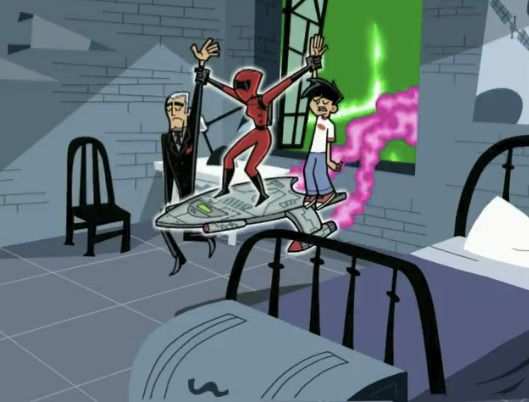
holding up a grown man and a teenager your own weight with one arm each?? okay miss girl, I see those pull ups coming into clutch
#see I already knew Valerie was one of Danny's actual love interests#I just didn't see how they would get there since she was a bully#but enemies to lovers? I'm pleasantly surprised#this show overall is better than I thought it'd be#it can be a little predictable but the character writing is actually quite good#no two characters are written the same#and I appreciate them bringing back recurring villains#dp#danny phantom#liveblog#Valerie Gray
2K notes
·
View notes
Text
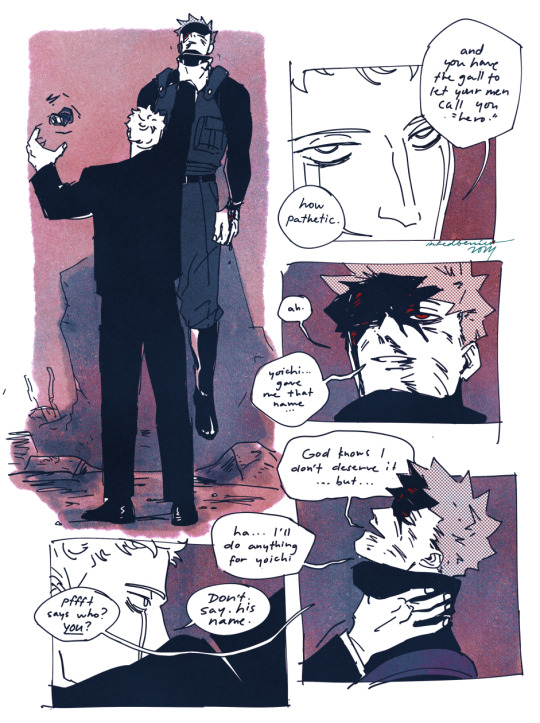
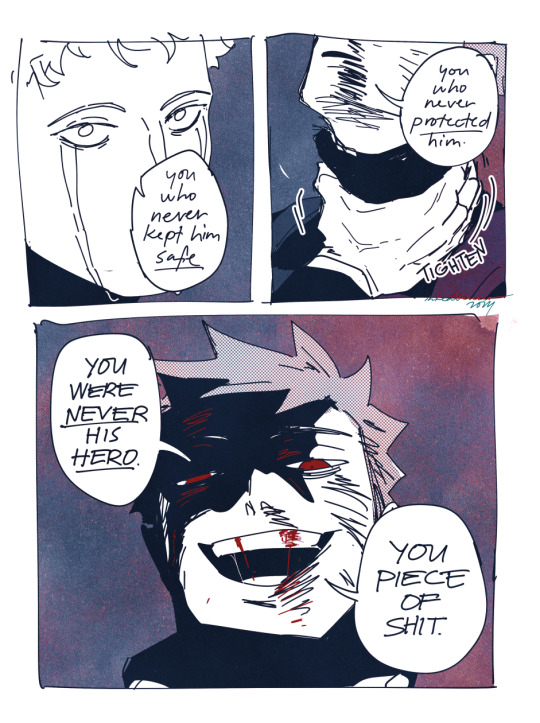
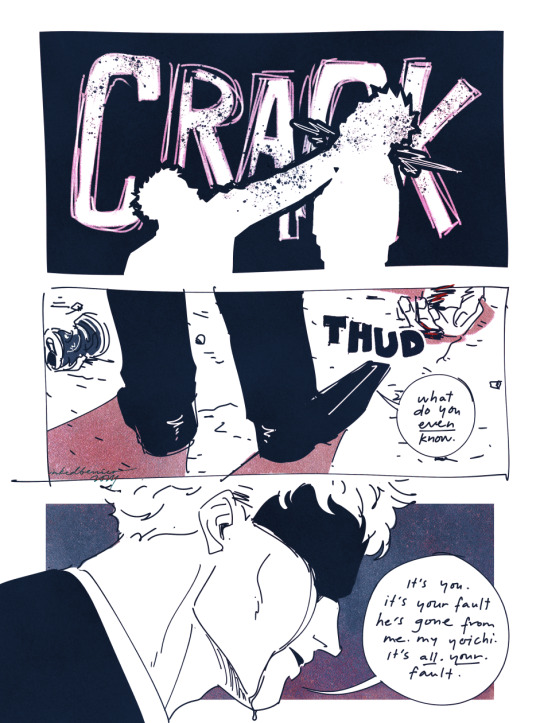

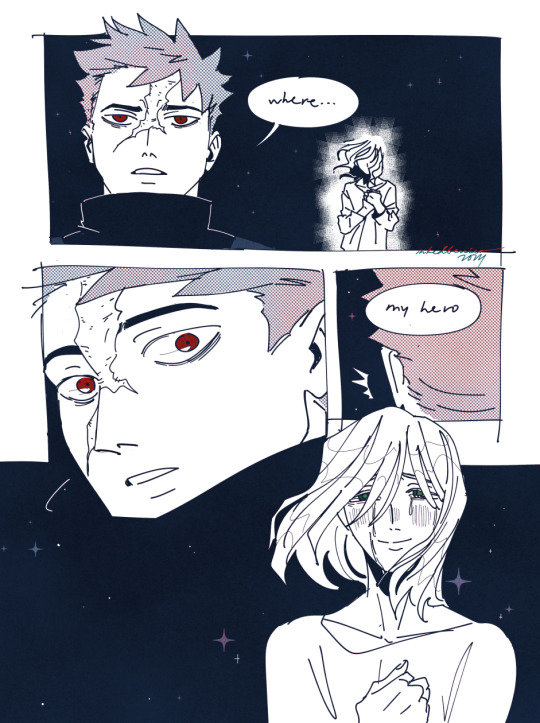
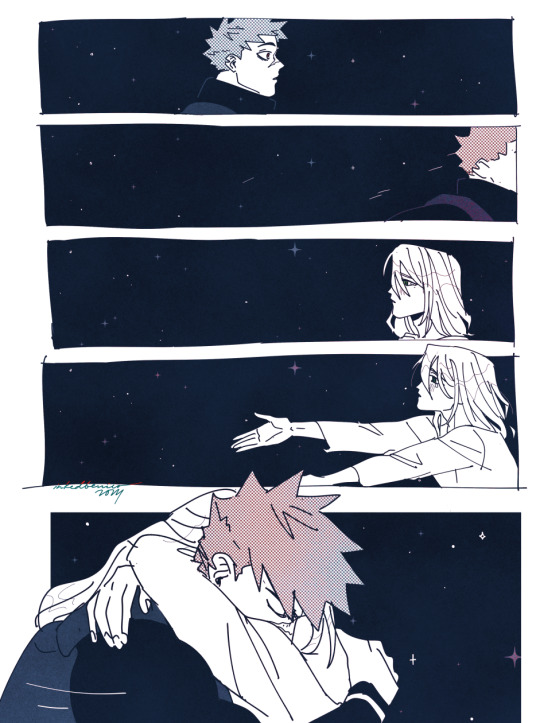
expanding on the thought of kudou getting the call sign 'hero' and afo getting irked by it for some reason
#to afo: devastating! the insignificant lout read you like a sunday strip at the back of a newspaper. How can you ever recover!#this is basically what i imagined when we got this scene from That chapter#i also have So Many Thoughts about the development of yoichi and kudou's relationship in the two months they knew each other#and also how kudou fared after yoichi died#horikoshi you shouldnt have given me so much wiggle room on this part of bnha;s lore who Knows what i might do!#it's the sweet spot of the right amount of canon material and the lack of it to let my imagination run wild#also afo is such an interesting character as soon as this scene hit#i have so many thoughts about him and his relationship with yoichi too#bnha#bnha spoilers#i guess??? for anime-only fans#mha#kudou mha#yoichi shigaraki#kudoichi#oh afo is here too i forgot lmao#afo#my art#fanart
2K notes
·
View notes
Text

Orgim...
Bug Fact: Cochineal are white fluffy insects that are found on Prickly Pear Cactus. For thousands of years and even in the present day, they have been used for the red pigment 'carmine' in fabrics, clothes, and food coloring!
V2 First || Prev // Next…
Volume 2 Masterpost ▴♥︎▴
The bug does have to be crushed up, but due to responsible farming of the insect, they're populations are stable and not at risk! <3





#Ogrim's BIG reason for being in Volume 2#up next. Dung Beetle cries about his dead friends. Oh.... and the plot ig#He is hiding SECRETSSSS and also hiding his grief super well ;w;#I always thought is was interesting that Ogrim KNEW about the Abyss and all the King's sins AND was “sworn to protect the Sewers”#which is RIGHT ABOVE the Abyss. Sus if i've ever seen it#The love of his life “Isma” is dead.... :(#Dewi's Adventures in Hollow Knight#Dewi's Adventures in Hollow Knight V2#hollow knight humans#comic#hollow knight au#Lilybug Comics#art#Hollow Knight#hk fanart#hollow knight comic#hollow knight art#hk art#hk au#sam#dewi#my art
776 notes
·
View notes
Text
honestly the funniest thing they could do is if the ceo and her suspiciously buff secretary AREN'T the villains of the game
#pokemon#pokemon legends za#pokemon spoilers#pokemon legends za spoilers#ok now to rant#i definitely like how the game looks#everything is smooth and clean and the lighting is pleasant#much better than scarlet/violet in terms of appearance#the starters... why 2 johto starters?#i'm crossing my fingers for kalosian forms#but they're probably just going to get mega evos#kinda knew it wasn't gonna be set in the past but still disappointed about it...#dodging you can control is really interesting#love that you can catch pokemon w/o battling them still#i'm sure i'm gonna have fun with it no matter what#plus we don't know ANYTHING about the story
784 notes
·
View notes
Text
so, one aspect of catelyn which i think is underrated (certainly the biggest adaptation loss which nobody talks about) is her, let's say superstitiousness, or better yet, let's call it genre-savviness, being one of the few adult characters open to magic and the supernatural in this fantasy world. we first meet her in the godswood, home of gods which are not truly hers, yet she is still very aware of their power. when she and ned talk of the deserter he killed, he hopes he won't have to go with the nw to deal with mance rayder, but she has even more fear of that idea bc there are worse things beyond the wall than just wildlings. ned scoffs and says she's been listening to old nan too much, but she's right. we already know from the prologue that she's right! and here she is, understanding the genre of their world better than her husband, who was actually born and spent his earliest years in this northern land of deep magic, listening to old nan's stories. same with the direwolves, where she was uncomfortable with them at first, but later believed in them as guardians from the old gods even after robb had lost his own faith. and once again, we know she's right even if she doesn't know the evidence to back up her instincts, bc summer and shaggydog did not fail bran and rickon and robb was almost certainly a warg like his brothers. (perhaps making it more fitting that she's the one brought back as a fantasy vengeance monster, not ned and robb, the most unbelieving dead starks.) and in her 2nd agot chapter, everyone focuses on her ambition in wanting ned to agree to the hand job (pun intended) and sansa's betrothal, and while she does recognize the value of their daughter being a future queen more than ned does, that's only her stated argument bc she thinks it's rational enough for ned to listen to. (if ambitious matchmaking were as important to her as to her father she never would have made those frey betrothals fandom loves to blame her for.) in her own head there's a deeper urge driving her. she keeps thinking of the dead direwolf with antlers in its throat, an omen which filled her with dread from the first she heard of it, before robert's arrival, and thinking of it again is what makes her desperate to convince ned not to refuse robert. she had to make him see. and really, she's not wrong, as jon snow would say. the dead direwolf was an omen of ned and robert getting each other killed. it's just one of those misread portents, with no way of knowing the danger to ned was in his loyalty to robert, not conflict with him. BUT the next time she's dealing with baratheons, she knows exactly what she's talking about. it's catelyn, not brienne, who sees the shadow slaying renly, and explains that it was stannis who did that through some dark magic. with no way of knowing how it was achieved and no prior expectation that such a thing were ever possible, she realizes with no hestitation that stannis was guilty and that his red witch was capable of pulling this off somehow. really, the only instinct of the supernatural she's wholly wrong about is her insistence that varys gathered his knowledge through some dark enchantment. however, though that might offend varys, given his own personal experience with a sorcerer, i'd say it's a reasonable assumption without knowing the dude had children moving through walls everywhere like oversized rodents. and imo it just shows she had a healthy respect and awe for varys's power which most other characters lack.
oh, oh, and let's not forget that she also believed in the curse of harrenhal, from her own childhood and the stories old nan told her kids. "and every house that held Harrenhal since had come to misfortune. Strong it might be, but it was a dark place, and cursed. 'I would not have Robb fight a battle in the shadow of that keep,' Catelyn admitted." sure, that wasn't enough to save robb, but he did not die from the curse of harrenhal. that doom was meant for his enemies from tywin lannister to roose bolton.
#valyrianscrolls#asoiaf#asoiaf meta#catelyn stark#catelyn tully#this why i can't w talking abt how much better the northerners are for their supernatural setting#when w the exception of the crannogmen most of them understand their setting less than their southron 7-following lady of wf#people of the riverlands can follow useless gods and still not lose their belief in magic#and people who think it would have been cooler if robbwind or even ned took lsh's place are not just missing the point bc grrm#focused on catelyn as pov for a reason but bc thematically all the gods knew who was actually open to their power#everyone else was only interested in that stupid outline for starkcest shipping but i was most intrigued by cat going beyond the wall#happy tully tuesday!#(c)lsb
2K notes
·
View notes
Text
the most difficult thing about growing as a person socially, as in getting out of your shell and noticing that you are, is that there will still be times when it doesn’t feel like you’ve grown at all! times when you can’t really connect with anyone around you, times when you fail to enter into an existing conversation, times when you say the wrong thing (or nothing at all when in hindsight you probably should’ve). but that’s also kind of the best thing, because that’s the thing that helps you realize that sometimes, it’s not you or your lack of skills or any shortcoming. sometimes certain environments just aren’t for you and certain people aren’t your people, and that’s okay. that’s human. it’s okay to not feel the progress you have made all the time.
#and that goes for every type of growth#backstory of this post:#after I came back after a few months of doing my international internship I felt so much more confident#it was easier making friends and walking up to people#i took more chances#and generally just heard it a lot from those around me who kept telling me how much i’d changed#this was further supported by my first office job that went pretty well#but then came my grad internship. and while i love the work and have met some great people I noticed it was difficult again#there was one office lunch where no one spoke to me at all! it was my first week and I didn’t know what to say#if i should even say anything#we were all sitting at the same table#not one person even glanced my way#it made me doubt myself; i was doing so well before#was that even real? why can’t I just speak up? this is not the way to connect with people#especially in my first week!#but you know what#i was still doing well. i just had to factor in the fact that these were all middle aged people talking about reality shows i didn’t watch#and bikes i knew nothing about#as well as people who knew i was the new intern yet didn’t speak to me at all even though I’d introduced myself to them all individually#and even so#people I couldn’t really talk to about MY interests outside of work either#my point being:#it’s okay to not feel a connection with everyone you meet#it’s okay to fall back into old habits even though you’ve developed new ones#it will never unravel the process you’ve made and the connections you’ve built#you’re doing fine#after this internship I will surround myself with people who reaffirm that belief#growth in the self#self love#positivity
1K notes
·
View notes
Text

someone needs to take this au away from me. I have so much work i need to be doing but the neurons never stop firing
#batfam wing au#wing au#duke thomas#duke thomas fanart#the signal#signal fanart#art#fanart#digital art#ive got another ref sheet going for cass but im literally so busy right now its not even funny. so that might take a while#i should also probably draw something that isnt this au or work stuff at some point so i dont burn out#but ill get to it when i get to it#in the meantime this is my weekly addition to the wing au#i knew i wanted duke to be some sort of hawk or falcon or eagle bc of his eyes#and i tossed around making him a peregrine falcon for a bit#even considered making him a european robin bc theyve got the cool ability to see changes in geomagnetic fields#but i figured making him a robin might be too on the nose#and also european robins wing colors arent that interesting#so i settled on the harris hawk
740 notes
·
View notes
Text
can’t stop thinking about asterid hearing prim’s name being called and instantly thinking of maysilee, her best friend who didn’t come home, because she knew that would be the fate that would await her youngest daughter.
vs her seeing katniss volunteer, and instantly thinking of haymitch, burdock’s best friend who came home but was never the same again, because she knew that would be the fate that would await her oldest daughter.
then, when seeing prim scream for her sister, asterid finally thought of merrilee, her best friend who was bedridden with painful headaches and pushed her away in grief for her twin, because she knew that prim could become the same if katniss didn’t come home, like how maysilee didn’t.
years later, asterid watched katniss lose prim, and disappear into herself like she did after losing burdock; like haymitch after losing lenore dove; like merrilee after losing maysilee.
and she thought of everyone - the friends that didn’t return home, the friends that got spared but lost themselves to grief, the people that should’ve been alright but were in the wrong place at the wrong time (burdock in the mines; the donners / undersees in the bombing).
realising that no one was safe from the impact of the capitol, and snow. and that those who got reaped and didn’t come home were actually the luckiest of them all. because they didn’t have to see everything and everyone fall apart, over and over again, like a never-ending row of dominoes collapsing again and again and again….
#because she knew katniss had the potential to survive the games#but no one comes out of the games unscathed#and asterid saw firsthand the depression that haymitch fell into#it’s all a cycle#history book on the shelf is always repeating itself#the game is on again#a lover or a friend?#more like - a daughter or a friend?#me when i’m enter the ‘losing people i love’ competition and my opponent is asterid everdeen#she’s so tragic#and no i am not defending her neglect of katniss and prim#but i think she’s such an interesting character#asterid march#asterid everdeen#the hunger games#sotr#sunrise on rhe reaping#primrose everdeen#katniss everdeen#maysilee donner#merrilee donner#haymitch abernathy
552 notes
·
View notes
Text

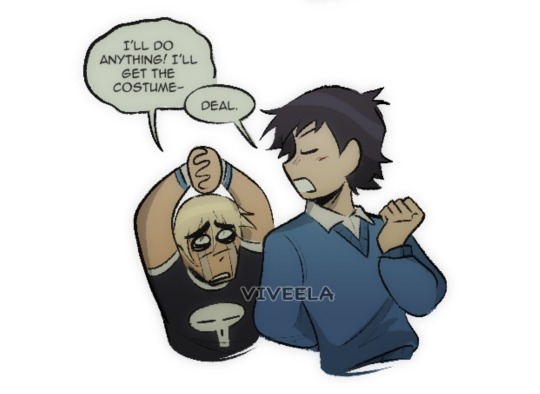
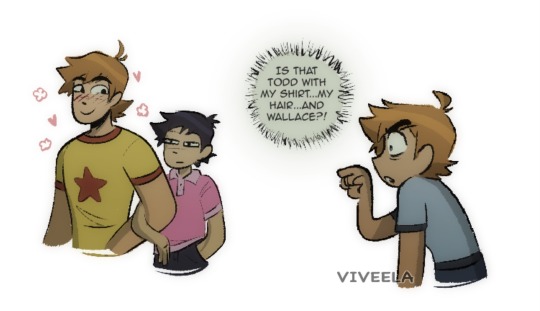
I wanted to see Scott's reaction so bad
#veearts#scott pilgrim takes off#scott pilgrim#scott pilgrim fanart#spto#spto fanart#spto spoilers#fan art#toddallace#scollace#idk a little of both#they were so interesting to me#i wish we knew how Scott felt about it LOL
8K notes
·
View notes
Text
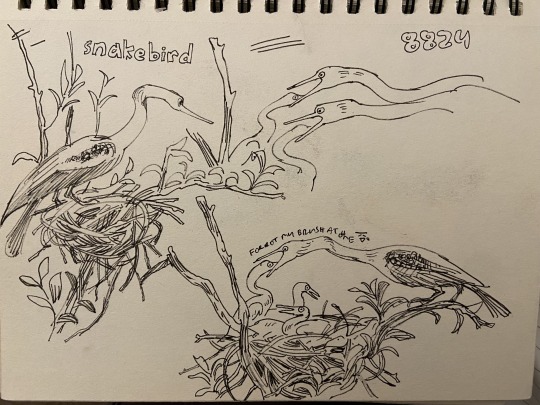
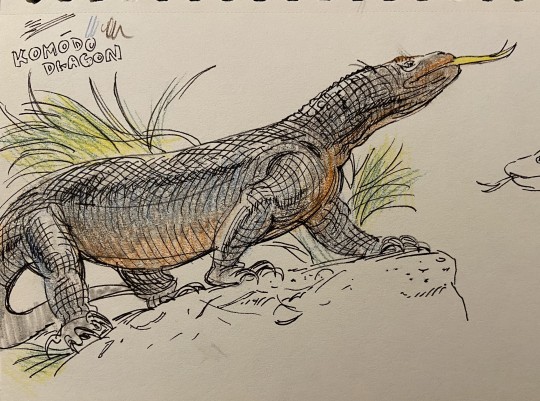
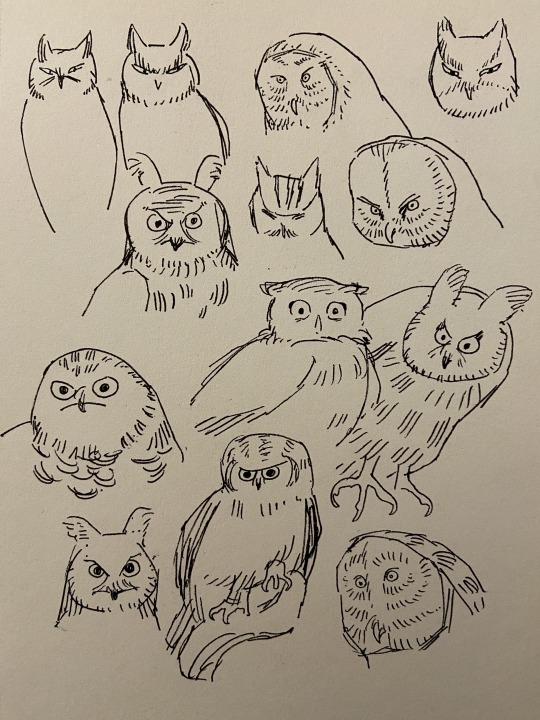
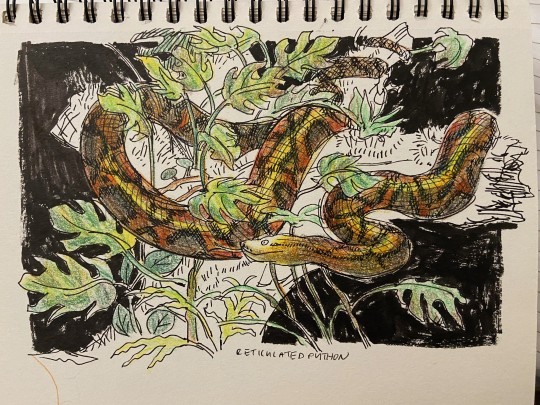
drew some creatures at the amnh :0
#sketchbook stuff#artists on tumblr#went to the butterfly pavilion too#they had an exhibit called opulent ocean and gOSH :'D#basically it was like old science/field drawings(??) of marine life but museum made them#into these huge posters on the wall and they were really gorgeous to see up close oauuauaughhgh#knew I forgot something at homehahhsfs aka my brush and the incorrect charger cord#would've stayed longer but my phone was kinda running out of battery#some of the exhibits are kinda dark so I'm just scribbling away colors/hoping they look fine hAHA#kinda interesting to see them later in normal light#edit: hmm...what if I made a pdf of all the museum/aquarium drawings#edit: also huh I am like...2/3 done with this sketchbook#which is kinda cool becasue I started it in february#also almost done with the birthday sketchbook from last year
1K notes
·
View notes
Text


It's the same image
#azula#ashes of the academy#baby Azula was a cat thank you for confirming what I already scientifically knew#other than that I am not interested
441 notes
·
View notes